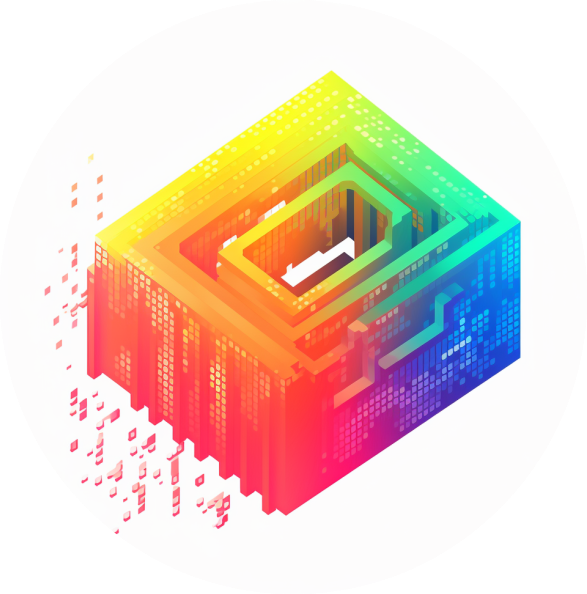“Creating a Brand Through Your Programming Blog” is an article that highlights the value and importance of programming blogs in enhancing coding skills and establishing a personal brand. This engaging piece compiles a comprehensive list of 13 influential programming blogs and websites, catering to readers at various skill levels. Readers will find popular platforms such as Better Programming, Lynda, David Walsh Blog, CSS Tricks, and NSHipster mentioned, along with practical tips for beginners. By emphasizing the benefits of running a programming blog, including technical skill development, brand creation, and effective expression of ideas, this article seeks to inspire readers to start their own blog. It concludes by emphasizing the significance of consistent coding practice and recommending the listed websites as valuable resources for skill improvement.
Benefits of running a programming blog
Enhancing technical skills
Running a programming blog can greatly enhance one’s technical skills. By regularly writing about programming topics, the blogger deepens their understanding of the subject matter. Through research and analysis of various programming concepts, the blogger gains a comprehensive knowledge of different languages, frameworks, and tools. This continuous learning process allows the blogger to stay updated with the latest trends and advancements in the programming world.
Furthermore, writing about complex programming concepts requires the blogger to break them down into simpler terms, making them more understandable for readers. This exercise of simplifying technical concepts not only benefits the readers but also solidifies the blogger’s own understanding of the subject. Explaining concepts in a clear and concise manner improves the blogger’s ability to communicate effectively, a crucial skill in programming.
Creating a brand
Running a programming blog provides an excellent opportunity to create and establish a personal brand. By consistently producing valuable and informative content, the blogger can build a reputation as an authority in their chosen programming niche. This brand recognition helps the blogger stand out in the highly competitive programming industry and opens doors to collaboration, job opportunities, and speaking engagements.
Establishing a brand also gives the blogger credibility and trustworthiness. When readers consistently find valuable and reliable information on the blog, they are more likely to trust the blogger’s expertise and recommendations. As a result, the blogger may gain a loyal following who rely on their insights and advice.
Expressing ideas effectively
A programming blog serves as a platform for bloggers to express their ideas, thoughts, and opinions on various programming topics. It allows them to share their unique perspectives and insights, fostering discussions and interactions with readers. By articulating their thoughts through writing, bloggers can refine their ideas and develop a cohesive and logical thought process.
Furthermore, through active engagement with readers, bloggers can receive feedback, suggestions, and alternative viewpoints. This interaction enhances their critical thinking skills and expands their knowledge base. The ability to effectively express ideas not only improves the blogger’s communication skills but also encourages the exploration of new and innovative programming concepts.

Steps to create a programming blog
1. Identify your target audience
Before starting a programming blog, it is crucial to identify the target audience. Understanding the needs, interests, and skill levels of the intended readership helps in tailoring the content accordingly. Is the blog targeting beginners looking for programming basics, or is it catering to advanced programmers seeking in-depth technical knowledge? By knowing the target audience, bloggers can create relevant and engaging content that resonates with the readers.
2. Choose a blogging platform
Selecting a suitable blogging platform is essential for building and maintaining a programming blog. There are several popular options available, such as WordPress, Blogger, Medium, and Ghost. Each platform has its own features, customization options, and ease of use. Bloggers should carefully assess the platform’s compatibility with their technical requirements, design preferences, and long-term goals before making a choice.
3. Select a unique domain name
Choosing a unique domain name is crucial for creating a professional and memorable programming blog. The domain name should reflect the blog’s content and overall brand image. It is advisable to select a domain name that is short, easy to remember, and relevant to the programming niche. Conducting thorough research to ensure the chosen domain name is not already in use is essential to avoid trademark conflicts.
4. Design an appealing website layout
The design and layout of a programming blog play a significant role in attracting and retaining readers. A visually appealing and user-friendly website layout enhances the overall user experience. Bloggers should carefully select a clean and modern design that complements their programming content. Attention should be given to readability, navigation, and responsiveness across different devices and screen sizes.
5. Create compelling content
The most crucial aspect of running a programming blog is creating high-quality and engaging content. Bloggers should focus on delivering value to their readers by covering a wide range of programming topics, sharing useful tips, tutorials, and practical examples. Regularly updating the blog with fresh content ensures that readers keep coming back for more. It is essential to maintain a consistent publishing schedule to establish credibility and keep readers engaged.

Conclusion
In conclusion, running a programming blog offers numerous benefits for both the blogger and the target audience. By enhancing technical skills, creating a brand, and expressing ideas effectively, bloggers can establish themselves as experts in the programming industry. The steps to create a programming blog, including identifying the target audience, choosing a blogging platform, selecting a unique domain name, designing an appealing website layout, and creating compelling content, provide a roadmap for success.
Continuous coding practice is essential for growth and improvement in the programming field. In addition to running a programming blog, it is highly recommended to follow the listed programming websites, such as Better Programming, Lynda, David Walsh Blog, CSS Tricks, and NSHipster. These websites offer valuable resources, tutorials, and insights that can further enhance programming skills and keep up with industry advancements. So start a programming blog today and embark on a journey of continuous learning and professional growth.

